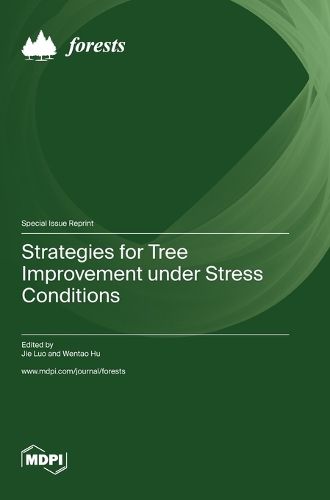Readings Newsletter
Become a Readings Member to make your shopping experience even easier.
Sign in or sign up for free!
You’re not far away from qualifying for FREE standard shipping within Australia
You’ve qualified for FREE standard shipping within Australia
The cart is loading…






This title is printed to order. This book may have been self-published. If so, we cannot guarantee the quality of the content. In the main most books will have gone through the editing process however some may not. We therefore suggest that you be aware of this before ordering this book. If in doubt check either the author or publisher’s details as we are unable to accept any returns unless they are faulty. Please contact us if you have any questions.
Perennial woody plants usually face multifactorial adverse conditions during their long lifespan, which impairs their growth and productivity. To cope with these adverse conditions, trees deploy morphyological, physiological and molecular responses to adapt to the environmental constraints. By using high-throughput sequencing and bioinformatic approaches, many hub genes that are involved in stress response were identified. In recent years, with the advantages of transgenic technology in woody plants, many candidate genes participating in stress responses were functionally characterized and showed great potential for tree improvement under different stresses. On the other hand, cultivation strategies (including beneficial microorganism investigation, beneficial microorganism inoculation, mixed forest and so on) also play crucial roles in tree improvement under abiotic and biotic stress.
$9.00 standard shipping within Australia
FREE standard shipping within Australia for orders over $100.00
Express & International shipping calculated at checkout
This title is printed to order. This book may have been self-published. If so, we cannot guarantee the quality of the content. In the main most books will have gone through the editing process however some may not. We therefore suggest that you be aware of this before ordering this book. If in doubt check either the author or publisher’s details as we are unable to accept any returns unless they are faulty. Please contact us if you have any questions.
Perennial woody plants usually face multifactorial adverse conditions during their long lifespan, which impairs their growth and productivity. To cope with these adverse conditions, trees deploy morphyological, physiological and molecular responses to adapt to the environmental constraints. By using high-throughput sequencing and bioinformatic approaches, many hub genes that are involved in stress response were identified. In recent years, with the advantages of transgenic technology in woody plants, many candidate genes participating in stress responses were functionally characterized and showed great potential for tree improvement under different stresses. On the other hand, cultivation strategies (including beneficial microorganism investigation, beneficial microorganism inoculation, mixed forest and so on) also play crucial roles in tree improvement under abiotic and biotic stress.